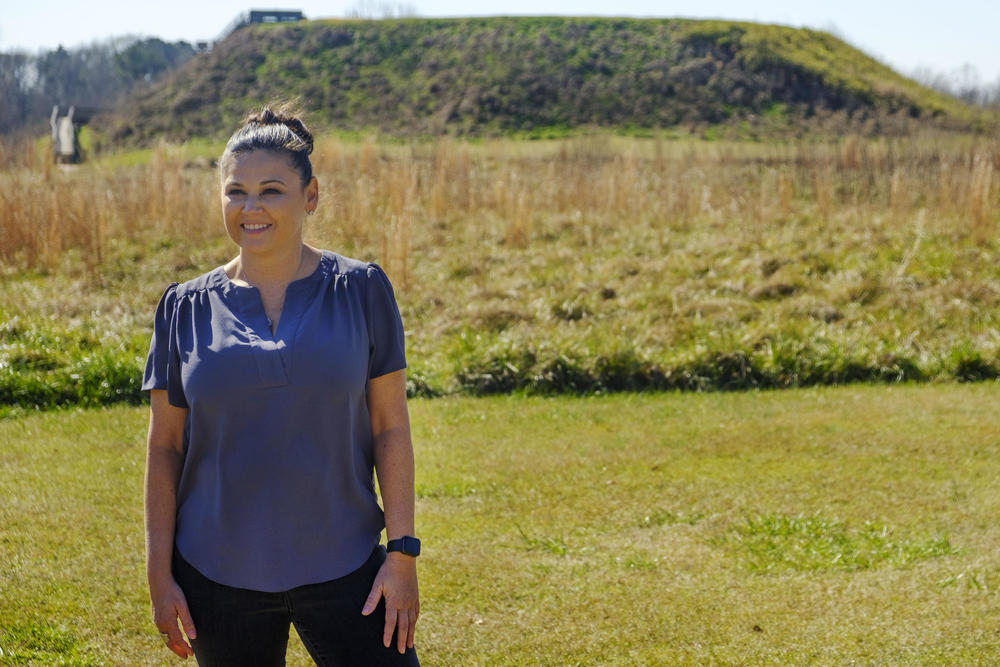
Caption
Tracie Revis was the first woman to serve as chief of staff to the principal chief of the Muscogee (Creek) Nation and has led community outreach with the Ocmulgee National Park and Preserve Initiative.
Credit: Grant Blankenship / GPB News


